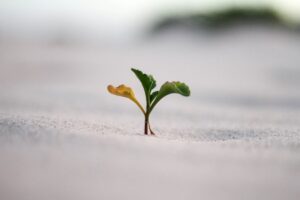Photo by Donald Giannatti on Unsplash
Learn the healing power of nature and its benefits in self-reflection and understanding the self.
Silence and clarity can seem scarce in today’s fast-paced, hyperconnected society. However, one age-old haven that still provides relaxation, wisdom, and healing is nature. One may wonder what nature can teach you about who you really are. More than just a kind recommendation, the call to self-reflect with nature is a means of achieving inner serenity, emotional clarity, and even a sense of purpose.
The Natural World’s Call
Nature has a special ability to both drag us away from ourselves and bring us closer to our true selves. We get back to the essence of who we are when we put aside the buzzing phones, deadlines, and social pressures of contemporary life. We are reminded that we are a part of something far bigger than the bustle of our everyday tasks by the constant cycle of seasons, the rhythmic smashing of waves, and the soft rustle of leaves.
In order to self-reflect with nature, we must stop, take a deep breath, and listen to the natural world’s call as well as our own thoughts and feelings, as well as the sounds of the wind and birds.
Self-Reflect With Nature: Its Teachings on the Self
Intentionally interacting with nature enables us to notice the trends, actions, and resiliency of the environment we live in. Trees take their time growing. Rivers adjust to challenges by determining the most effective course of action. The changing of the seasons serves as a reminder that life requires both change and relaxation.
These realizations have a profound impact on the human condition. In order to self-reflect with nature, you must be aware of your own cycles of development, rest, adversity, and rebirth. You start to realize that it’s acceptable to take your time, adjust, and let go of things that don’t serve you any longer.
Clarity of Emotion Through Organic Connection
Photo by Yasin Hoşgör on Unsplash
Emotional control is among the most potent advantages of spending time in nature. According to studies, spending time outside increases serotonin, the “feel-good” neurotransmitter, decreases cortisol, the stress hormone, and enhances mental clarity and focus. However, there is a profound fact that goes beyond science: you become honest with yourself when you self-reflect with nature.
You start to clear the clutter in your mind when you are in a calm place with trees or when you watch clouds pass. Nature simply holds space; it doesn’t evaluate your emotions. Space to feel, let go, and develop is sometimes just what you need.
Rediscovering the Wisdom of Human Nature
Rediscovering the Wisdom of Human Nature: How Civilization Destroys Happiness by Chet Shupe is a depressing but illuminating look at how far we’ve strayed from what actually feeds us. Shupe contends that we have been alienated from our own emotions and instincts as a result of modern civilization’s strict norms and institutions.
We start to reestablish that broken relationship in nature. Our natural state, as Shupe points out, is one of closeness, trust, and mutual support, elements that are frequently lacking in the modern world. Knowing oneself is only one aspect of self-reflection in the wilderness; another is recalling your true self before civilization dictated your identity. You encounter your actual self when you self-reflect with nature, unencumbered by the facades and demands of contemporary life.
A Sacred Tradition in the Contemporary Era
To self-reflect with nature, you don’t have to live off the grid or trek far into a forest. Taking a little stroll in a local park, sitting quietly under a tree, or caring for a small garden can all provide profound epiphanies. Being present is crucial. Get out of the house, put electronics away, and just be. Pay attention to the movements, sounds, and smells around you. Observe how your ideas come and go like clouds in the sky while you stroll in silence. Sitting on a bench or in the grass, try keeping a notebook of your thoughts and feelings. Allow your pen to reflect the way your thoughts naturally flow.
If meditation appeals to you, focus on a natural feature such as a stream, the sound of leaves rustling, or the warmth of sunlight. When you approach these routine encounters with nature with intention, they can transform into sacred moments and mini rituals that help you reconnect with yourself. It becomes easier to self-reflect on the troubles of our world, such as why we humans no longer love each other, when we are surrounded by nature.
The Restoration of Wholeness
Nature calls us to return to completeness in a world that frequently requires us to fragment ourselves to meet roles or expectations. It serves as a teacher, a healer, and a mirror. You regain a more profound relationship with yourself, one based on grace, truth, and simplicity, when you routinely self-reflect with nature.
In the end, nothing extravagant is necessary on the path to self-awareness. Simply go outside. Look up. Take a breath. And let your surroundings serve as a reminder of your true self. Learn more about this by reading Rediscovering the Wisdom of Human Nature: How Civilization Destroys Happiness by Chet Shupe today!









